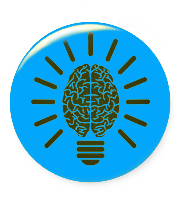
A Career in Medical Research: Reality or Myth
These are changing times in the medical education scene in India. With the 'MCI Board of Governors' tightening its belt to improve the situation at the grass root level and introducing multiple reforms, it won’t be surprising if medical research at the undergraduate and post graduate level too is shaken-n-stirred. Many of the changes suggested by MCI; reforming the syllabus, introduction of evidence based medicine, and removal of archaic concepts in medical education, are in fact pointers towards a research based curriculum. New concepts can't just be taught, they have to be learnt by practicing. The changes will shift the focus from the teacher and the subject, to the student and what he/she wants to learn and how they want to learn it. Hopefully this will lead to a transformation of the learning based on 'chalk and talk' to something more experience and practice based. Medical students would now no longer be sponges expected to absorb what is presented to them but would actively search and explore for new knowledge and in the process become better doctors.
Having said that, how does it affect the scenario for a medical scientist? We all know that such a thing is a rare entity as of now, at least in the Indian context. Despite the presence of several programs like ICMR Short Term Studentship and Kishore Vaigyanik Protsahan Yojana, we have hardly seen medical scientists being churned out of our medical colleges. But the huge turnout at medical research conferences for students seems to be contradictory to this popular belief. So what happens to these students who engage in research during their undergraduate days? Where do they go after presenting papers in the research conferences? The enthusiasm they display at the research conferences can’t all be spurious..
Here is presented a brief narrative of what happens to them, post MBBS. Well, many of them simply cannot pursue this during the post graduate days due to the compactly packed program. Even if the MD syllabus requires them to do original research and submit a dissertation at the end, it does not provide them the resources, background training, or any time to do it. So while they may still want to pursue it and want to be engaged in some sort of research work, they simply cannot as their hands and feet are tied down by the immense amount of work that they are burdened with.
Some others are not able to cope with the stress and patient observation required for successful implementation of a project and become casualties to the long and sometimes frustrating whirlpool of research. Research is indeed a long process and something that does not bear fruits every time it is expected too. The waiting is understandably unbearable for some people. While most succumb to the pressure and seek an easy way out, those who are steadfast in their endeavors achieve success and satisfaction.
Many others migrate to other fields or countries where research does not receive as hostile a treatment as it does in our country today. Perhaps not hostile, but the promotion of research in India is definitely not at all conducive as of now. While there are programs to promote research, such as the ones mentioned earlier but the magnitude at which they should be applied is far from satisfactory. Furthermore, not just the application of these programs is less than adequate, it is also incomplete. Majority of the students who participate in these research-training programs are those who would anyways have access to such facilities at their respective institutions. Thus while the rich get richer, as in the most affluent places get the maximum attention, the poor remain where they were.
Unfortunate, the situation may be; the recent trend in the medical education scenario is encouraging. Smaller and previously not so active places are coming up and promoting research in a big way. There are a multitude of student bodies and individuals coming up to promote this cause. Medicon 2012, to be hosted by Mahatma Gandhi Institute of Medical Sciences and Research at Sewagram (Wardha) is a classic example of how this awakening is being spread. With the advent of a number of journals prompting medical students to go ahead and publish their work to bring it across the board with all the leading researchers, we can only hope that “publication fame and satisfaction” which is a great encouragement for researchers worldwide will now be a push for the budding medical students as well.
The problems faced by researchers a decade ago are the same as of now as well. There is a vast majority of knowledge yet to be discovered. There are tones of data yet to be pulled out and a lot to be learnt. The learners are being looked out for, the discoverers and the inquisitive at heart are being sought for. Science is calling, where are you??
Dr. Akshay Sharma
INFORMER
- Log in to post comments



Comments
Healthy Meds Viagra EllLady
Flagyl Without Insurance http://buycialisuss.com - Buy Cialis Baclofene Ou Le Trouver cialis Cialis 20mg En Belgique
how to write a good introduction for an essay i57onb
Nicely put, Regards. https://definitionessays.com/ essay writing service recommendation
itc exclusion order cialis
It is a popularly used an effective treatment for erectile dysfunction https://cheapcialiss.com/ - cialis 20mg price